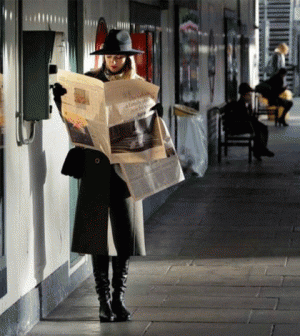- Finding Unshakable Power in a World That Wants to Pull Us ApartPosted 6 months ago
- What could a Donald Trump presidency mean for abortion rights?Posted 6 months ago
- Financial Empowerment: The Game-Changer for Women in Relationships and BeyondPosted 7 months ago
- Mental Health and Wellbeing Tips During and After PregnancyPosted 7 months ago
- Fall Renewal: Step outside your Comfort Zone & Experience Vibrant ChangePosted 7 months ago
- Women Entrepreneurs Need Support SystemsPosted 7 months ago
Don't be sexist and call me a housewife, say British women

By Sonia Elks | Thomson Reuters Foundation
Most women in Britain cannot do old-fashioned tasks, like darning and knitting, and instead see a good career as an accomplishment.
LONDON, Aug 2 – Half of British women find the word housewife outdated, sexist or embarrassing, a survey said on Thursday, as pressure mounts for greater equality at home and at work.
Most women in Britain cannot do old-fashioned tasks, like darning and knitting, and instead see a good career, financial security and being tech-savvy as key accomplishments, found a survey by My Nametags, which manufactures iron-on labels.
“There was a strong sense that, although many traditional skills are falling out of favour, these have been replaced with equally important know-hows,” Lars Andersen, managing director of My Nametags, said in a statement.
Despite sex discrimination being outlawed in the 1970s, few women in Britain hold top positions and salary differences have attracted significant public attention, with large businesses required to publish pay gap figures this year.
Women earn 18 percent less than men on average, government data shows.
Although women are making inroads into many highly paid professions, jobs like cleaning, catering and childcare – traditionally seen as women’s work – remain undervalued and often unpaid, said Samantha Rennie of charitable fund Rosa.
“Parenting, nurturing relationships and running households are everyone’s responsibilities,” Rennie, who finances projects that support women’s equality, told the Thomson Reuters Foundation in emailed comments.
“Until it becomes the norm for all genders to take on these roles in equal numbers, ‘housewife’ will remain a ‘dirty word’, rather than just an outdated one.”
More than three-quarters of 2,000 women surveyed said expectations of their role had changed over a generation. Nearly half said they are more fulfilled than their own mother was.
Another survey this month found that nearly three-quarters of Britons do not believe a woman’s place is in the home – although that consensus fell away if she had a young child.
(Reporting by Sonia Elks; Editing by Katy Migiro. Please credit the Thomson Reuters Foundation, the charitable arm of Thomson Reuters, that covers humanitarian news, women’s rights, trafficking, property rights, climate change and resilience. Visit http://news.trust.org to see more stories.)
Our Standards: The Thomson Reuters Trust Principles.






